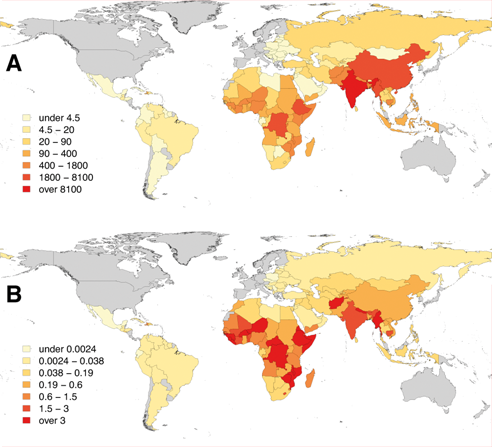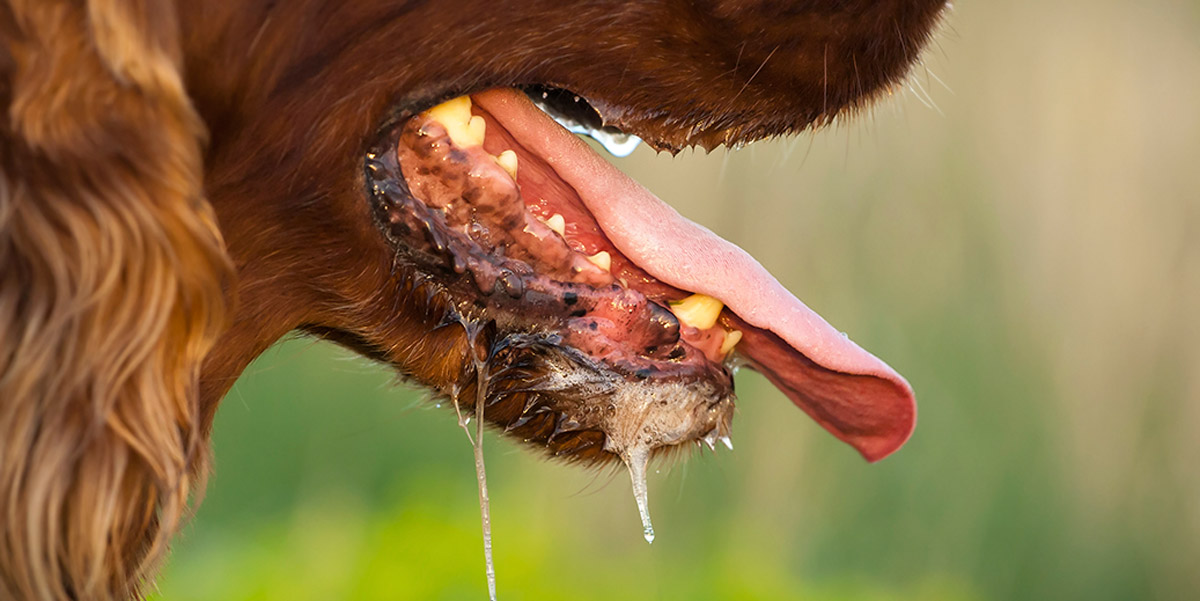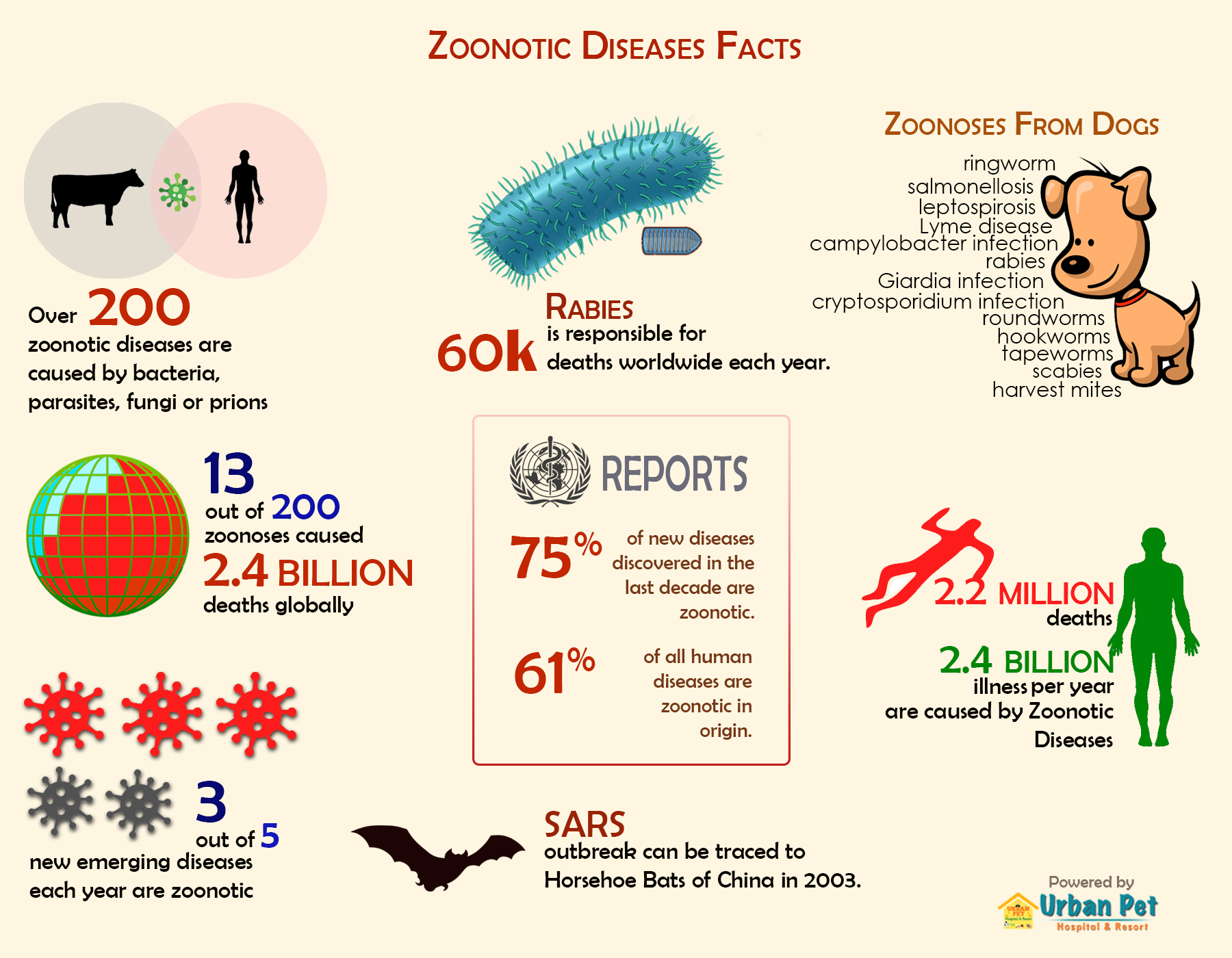Rabies is a viral disease that causes inflammation of the brain in humans and other mammals. It is transmitted from infected animals to humans through bite or saliva. Rabies vaccination is the best way to avoid rabies infection in the future. Early symptoms can include fever and tingling at the site of exposure.
More than 55,000 people in poor countries die from rabies every year – a rate of one person every ten minutes. Africa and India still bear the highest burden of total annual rabies deaths.
How does the pet hospital help fight rabies?
The cases of rabies are commonly seen in Asia, Central Asia, Middle East, Africa, and Caribbean Countries. These cases are mostly reported from the bites of rabid dogs, and wild animals such as bats and monkeys.
The animals infected with rabies secrete large amounts of virus in their saliva; the disease is primarily passed to dogs through a bite from an infected animal. It can easily transmit through a scratch or when infected saliva makes contact with mucous membranes or an open, fresh wound.

Human deaths from rabies; B: Death rates per capita (per 100 000 population); countries shaded in grey are free from canine rabies (TRS 3rd report, 2017)
Canines tend to suffer more from rabies than humans, as they are exposed to wild animals. The most common carriers of the rabies virus in this country are bats, raccoons, skunks, and foxes.
In the United States, rabies is reported in cats more than in any domestic species. If there are also cats in your household, it’s important to make sure they are vaccinated and kept indoors.
Pet Hospitals and veterinaries in the U.S. are committed to eradicating rabies. They have initiated and supported programs to help supply rabies vaccinations to areas at most risk for disease. Today, there are only fewer cases of rabies in dogs throughout the U.S.
The commonly used drug for treating rabies is Nobivac®, Canine 1-DAPPv vaccine is a modified live virus vaccine for the vaccination of healthy dogs as an aid in the prevention of disease caused by canine distemper virus, adenovirus type 1 (hepatitis) and adenovirus type 2 (respiratory disease), canine parainfluenza virus, and canine parvovirus.

According to MERCK Animal Health,
“It is an effective 1-year vaccine to prevent rabies in dogs, cats, and ferrets. It is approved for the vaccination of healthy dogs, cats, and ferrets as an aid in preventing rabies. It is recommended for use in healthy dogs, cats and ferrets 3 months of age or older.”
Do rabies shots prevent dogs from getting rabies?
The only remedy for rabies is the proper vaccination. Dogs and cats are first vaccinated for rabies between 3 and 6 months of age. They need a booster one year from that date. They are then generally vaccinated every three years.
Some states still require annual rabies vaccinations for dogs and/or cats. So far, regular vaccination is the only method to effectively protect canines from getting rabies. However, you should still bring your dog to a veterinarian if you suspect it was bitten by a rabid dog or a wild animal. The veterinarian will recommend a booster vaccine and monitor the vital sign of your dog for any sign of infection.
It is false that the animals will clearly appear rabid and unwell if infected with the rabies virus. While most animals demonstrate some signs of illness such as aggression or lack of balance, some may not have noticeable symptoms.
Rabies the Disease vs. Rabies the Vaccine
It is the only vaccination required by law in the United States to curb rabies. The other main concern is that it is a zoonotic disease.
Zoonotic disease or zoonoses are terms used to describe an infection or disease that can be transmitted from an animal to a human being. In general, these diseases normally exist in animals but can affect humans through different forms of contact.
The zoonotic disease can be caused by a range of pathogens such as viruses, bacteria, fungi, and parasites. Of 1,415 pathogens known to infect humans, 61% are zoonotic in nature.
There is no possible cure for rabies; however, vaccinating your pet will help an animal mount an immune system response to protect against rabies.
How Long Do Vaccines Offer Protection?
Some experts suggest that a single shot of vaccine is enough for three years, however, many states in the U.S. demand that the owner take their pet for a vaccine shot every year.
How long a vaccine, rabies or otherwise, is "good" for, in terms of actual disease protection is still debated. The vaccine, the health of the individual and their immune system, the disease agents, all of these factors come into play.

Do veterinarians need a rabies vaccine?
Veterinarians are at the front line when it comes to dealing with rabid dogs, infections, and treating other zoonotic diseases, hence they must be prepared beforehand to prevent any occupational hazard.
The rabies vaccine is equally effective in veterinarians to ward off chances of getting rabies.
Pre-exposure Rabies Vaccine
Pre-exposure rabies vaccination is provided as a precautionary measure. It provides additional protection for at-risk veterinarians, vet techs and other staff. Although it helps to ward off rabies, it but does not replace good preventive measures such as personal protective equipment, and safe animal and specimen handling procedures.
According to the National Association of State Public Health Veterinarians’ Compendium of Veterinary Standard Precautions for Zoonotic Disease Prevention in Veterinary Personnel, all veterinary staff with animal contact must be vaccinated against rabies, followed by periodic titer checks and rabies vaccine boosters, in accordance with the ACIP recommendations.
The ACIP recommends titers on a schedule of every two years to assess protective immunity, with a single-injection booster vaccination recommended if the titer level is below 1:5 serum dilution (0.1-0.2 IU/mL).

Urban Pet Hospital & Resort is a premier veterinary in Des Moines specializing in pet care, pet health, and training. We have conducted and participated in community programs to rescue homeless pets. We carefully follow the state guideline regarding rabies vaccination. Our staffs are well-equipped to demonstrate rabies prevention.